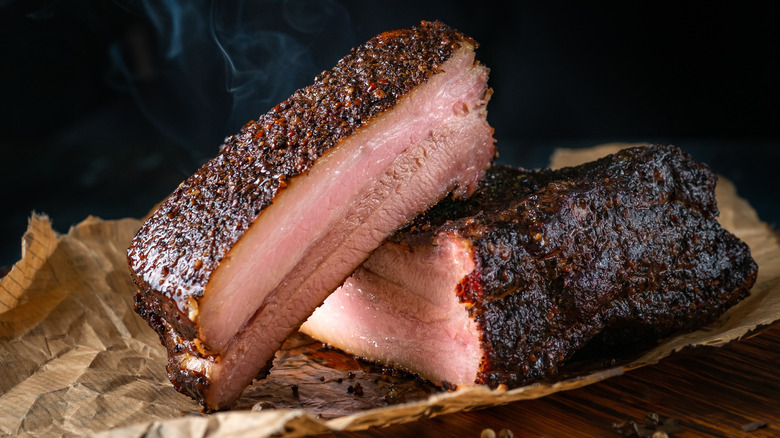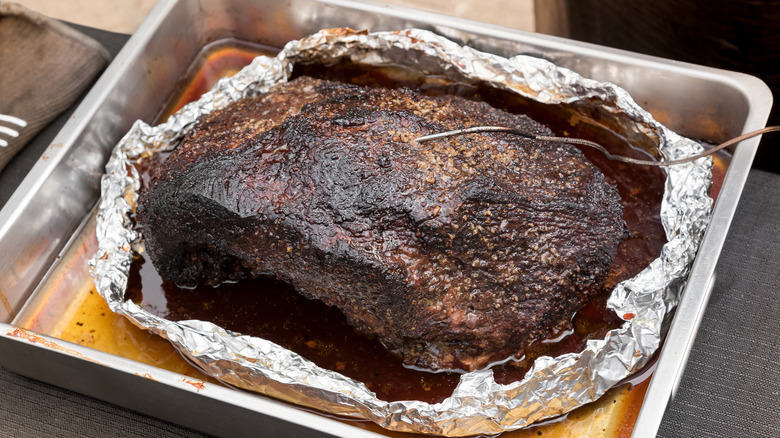Why It's A Big Mistake To Wrap Brisket With Foil
As any good pitmaster knows, brisket needs to be wrapped up after it's done forming a nice, crispy bark to help push the internal temperature up to the desired goal. But the material you use to wrap the brisket matters, and you may be going with the choice wrong. To learn about the ins and outs of wrapping brisket, we reached out to Robbie Shoults, Celebrity Chef, third-generation Owner of Bear Creek Smokehouse, Owner of Marshall Mercantile and High Horse, and Founder of Bear Rubz Grillin' Spices.
"Wrapping a brisket will produce a juicer, more tender end product," Shoults told Tasting Table. "We always wrap with paper, as I think it is better than aluminum foil." By paper, Shoults is referring to butcher paper not parchment paper. Aluminum foil is a popular choice, but most grill masters consider it a brisket mistake. "If you wrap with aluminum foil, there is a chance your brisket could taste more like roast beef, and we don't want that," Shoults continued.
But it's important to wrap the brisket. "Wrapping keeps the meat moist by trapping in the juices and preventing it from drying out. It will also help prevent your brisket from becoming over-smoked." The act of wrapping brisket is known as the Texas crutch, and it's used as a way to avoid what's known as brisket stall. The internal temperature of the brisket stalls out around 170 degrees Fahrenheit and needs to be wrapped to push it up to the desired 200 degrees Fahrenheit.
The aluminum foil versus butcher paper debate rages on
There are some good reasons to pick aluminum foil as your material for the Texas crutch, which is probably why you still see people using it today. Aluminum foil was the original material used when the Texas crutch was first coming onto the barbecue scene, probably because aluminum foil is practically designed for just this sort of task. It folds around the meat easily, creates a tight seal, and handles heat well. The problem is that aluminum foil is actually too good at its job and traps moisture inside the seal, which can soften up the nice crisp bark that you worked so hard to achieve before wrapping it.
Butcher paper is made from wood pulp and has a nice, thick feel to it that makes it a little more difficult to fold around the brisket compared to aluminum foil. But because it isn't a perfect seal, moisture doesn't get trapped and ruin your bark, which is a big upside. On a purely flavor and texture level, butcher paper beats out aluminum foil fair and square. The downside is that it takes practice to get the wrapping right, and most people don't have butcher paper readily at hand. However, that little extra effort is totally worth it when your brisket comes out looking like it's about to receive an award. You've already spent the time to make your brisket extra flavorful, why ruin it at the last minute with the wrong wrap?

